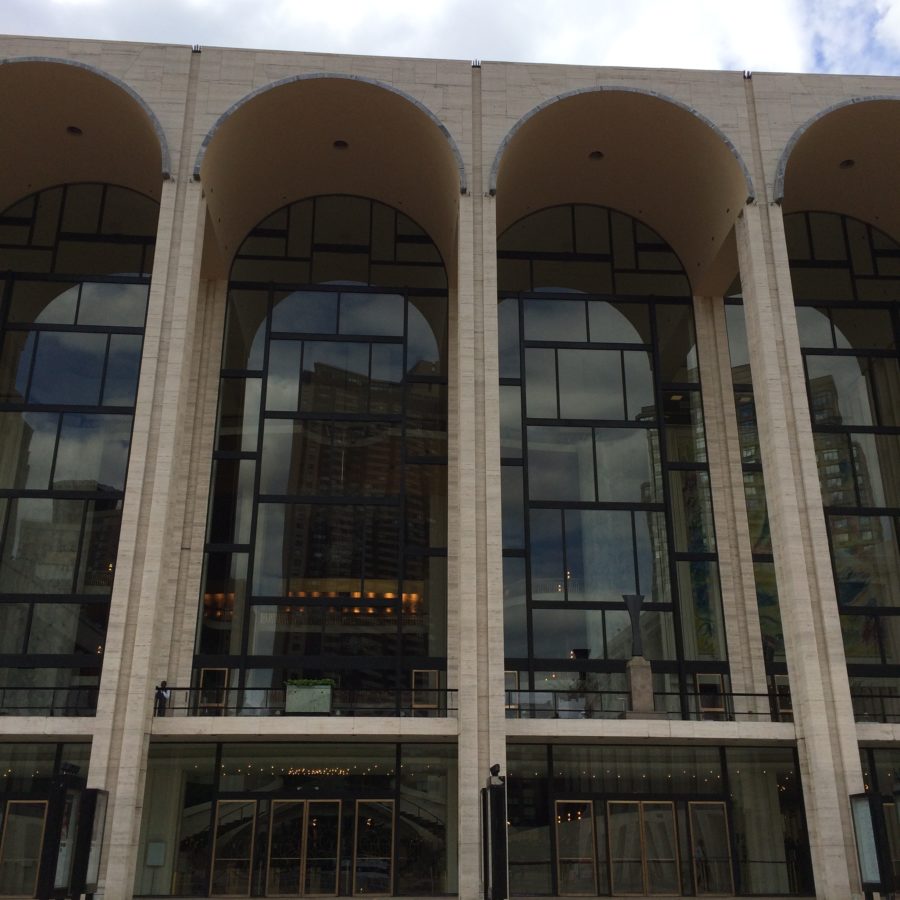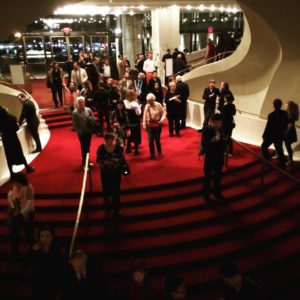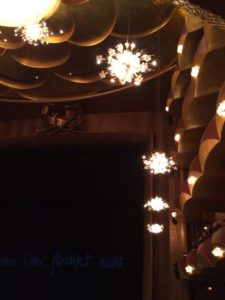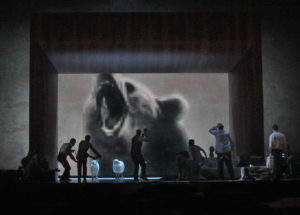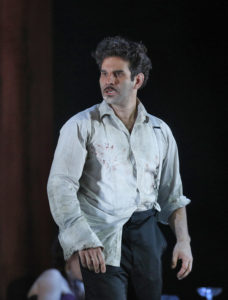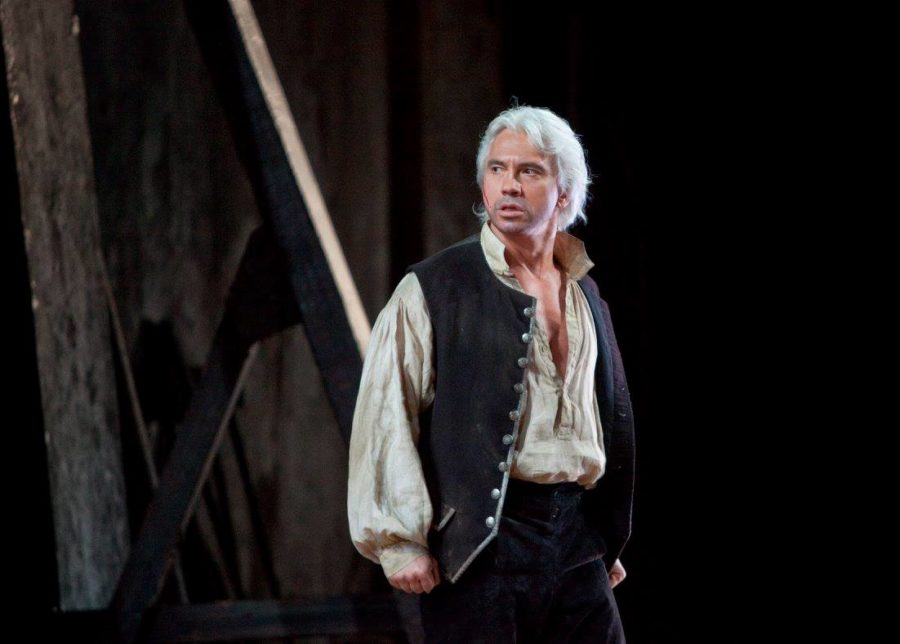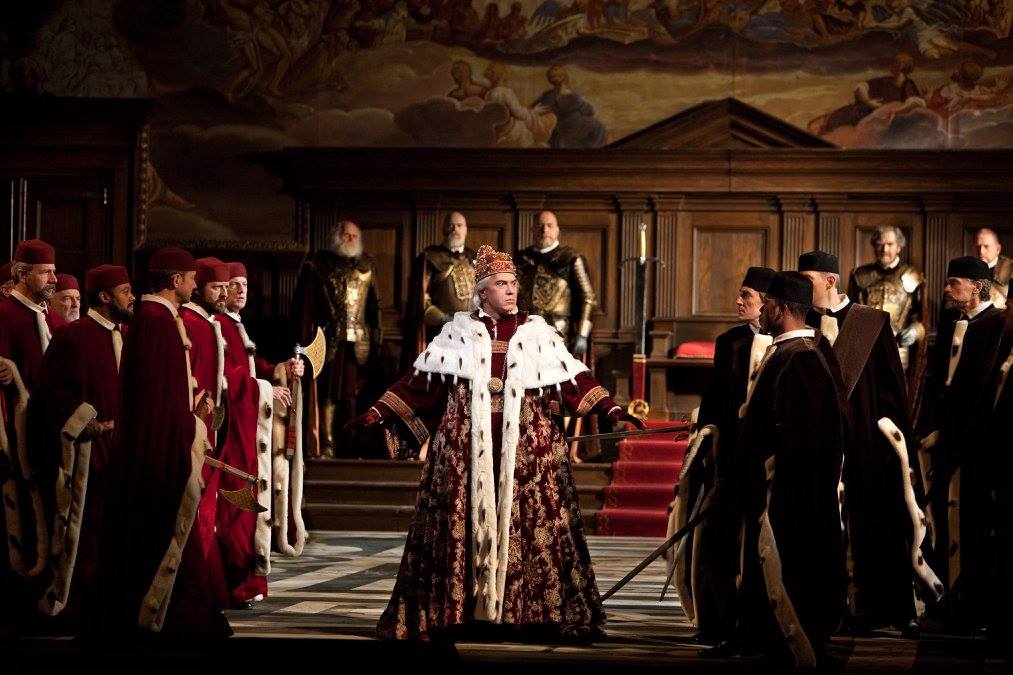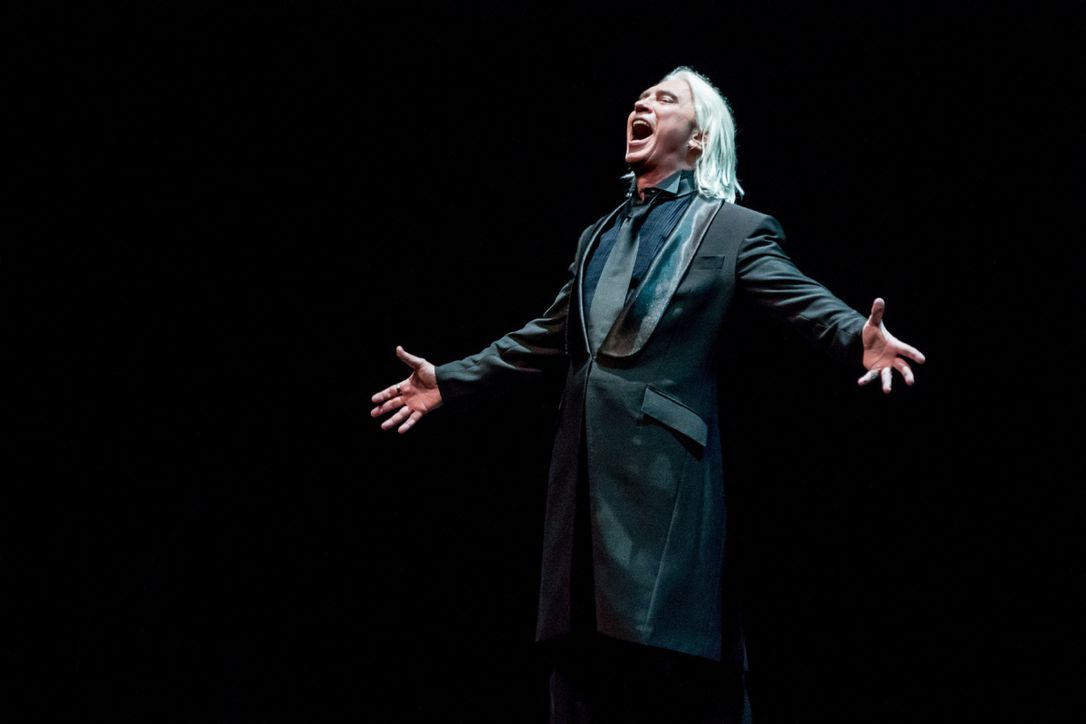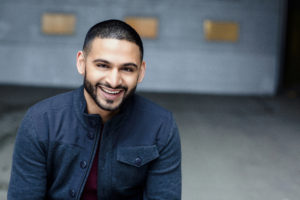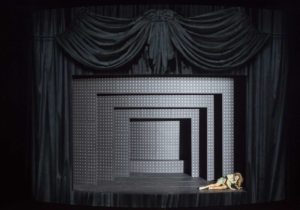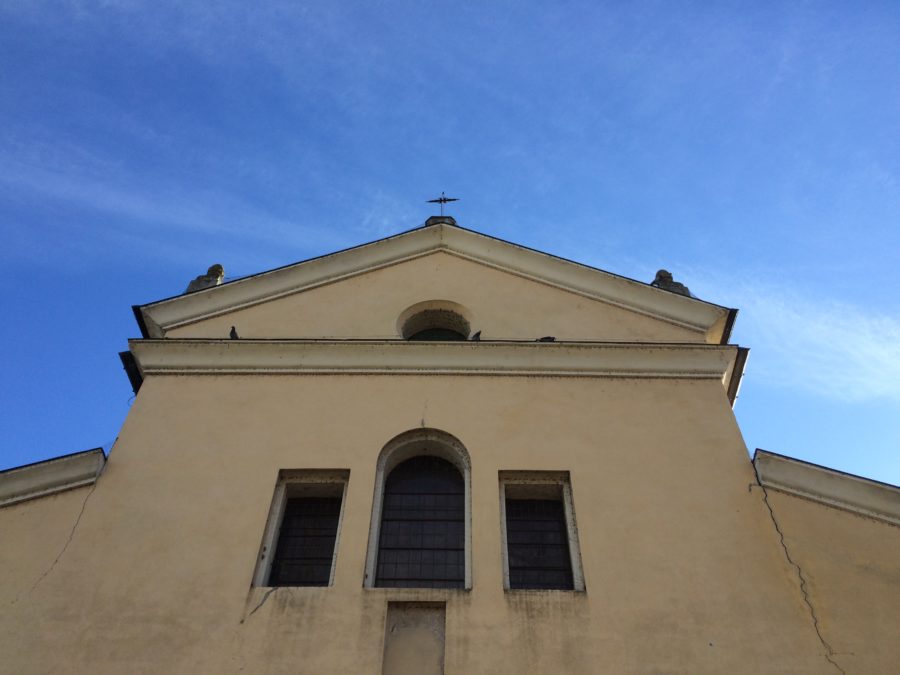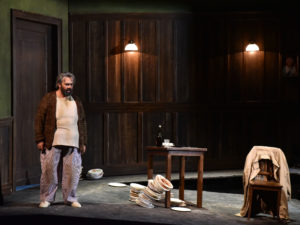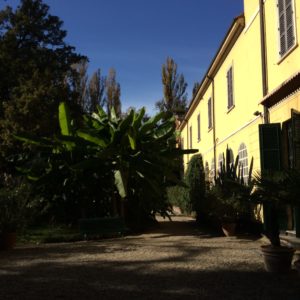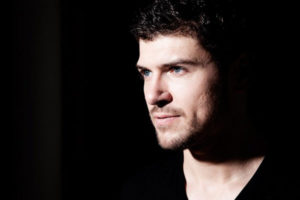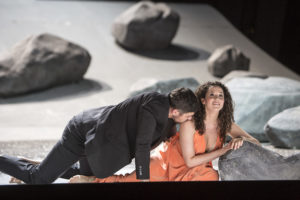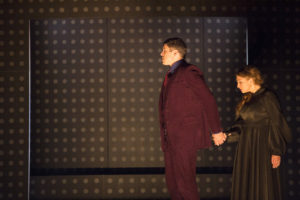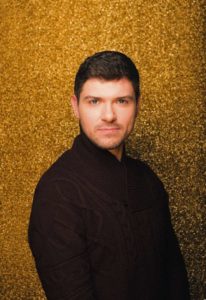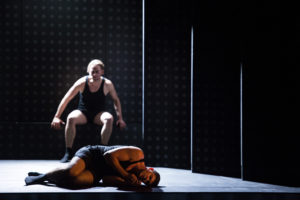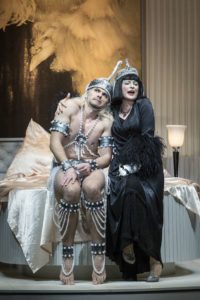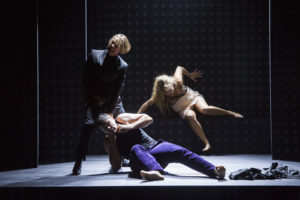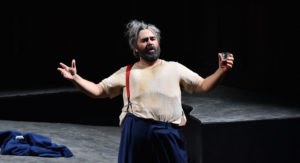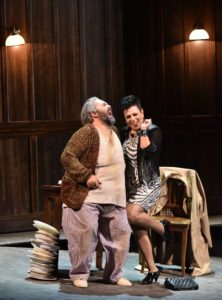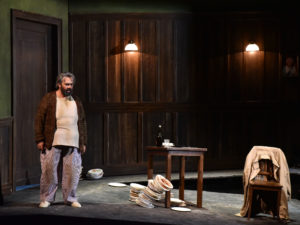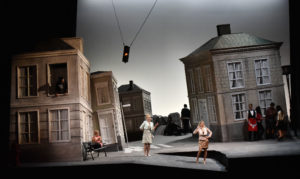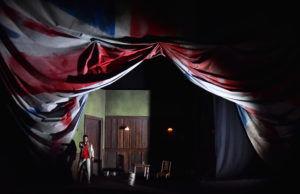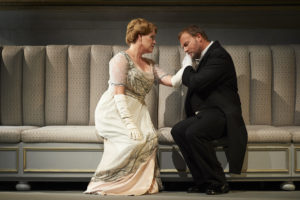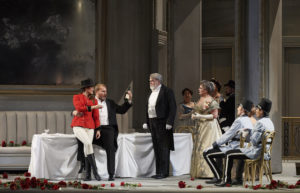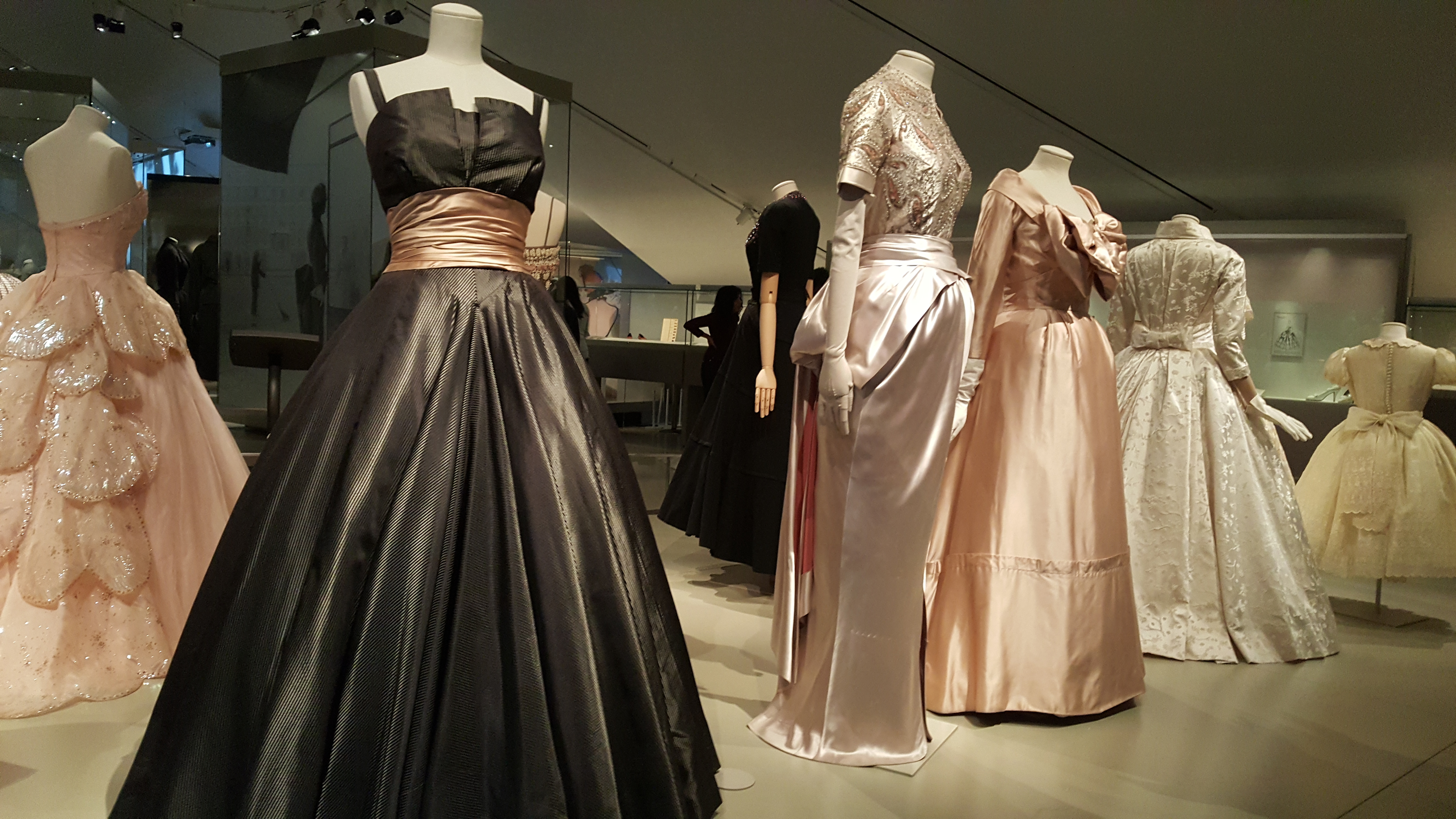
The designs of Christian Dior at the Royal Ontario Museum. (Photo: Julia Bachelor. Please do not reproduce without permission.)
“That’s straight out of Lucia di Lammermoor!”
Those were the words I exclaimed in setting sights upon a voluminous, stripped 19th century dress on display as part of the Dior exhibition, currently on view through March 18th at the Royal Ontario Museum (ROM). I was reminded of the opera yet again when I caught sight of a beautiful red-black piece nearby, complete with nipped-in waist and black gloves; never mind trying to impress Edgardo, it seemed certain Lucia certainly would have worn this for herself. Doing precisely that, by and for one’s self, feels like a powerful subtext of much of individual style, though certainly one has to be aware of the effect one might have at any given time. This feels especially true for Dior.
I attended the exhibition for a variety of reasons: my mother was a fan of the French designer’s work and owned a choice few items I now cherish; many of the women I admire, particularly within the arts world, were fierce fans of his work (“No Dior, no Dietrich!“); they are artworks — sleek and shapely as sculptures, textured and colorful as paintings, sensuous and free-flowing as dancers. Dior’s designs have a timeless and appealing blend of drama, elegance, power, and sophistication.
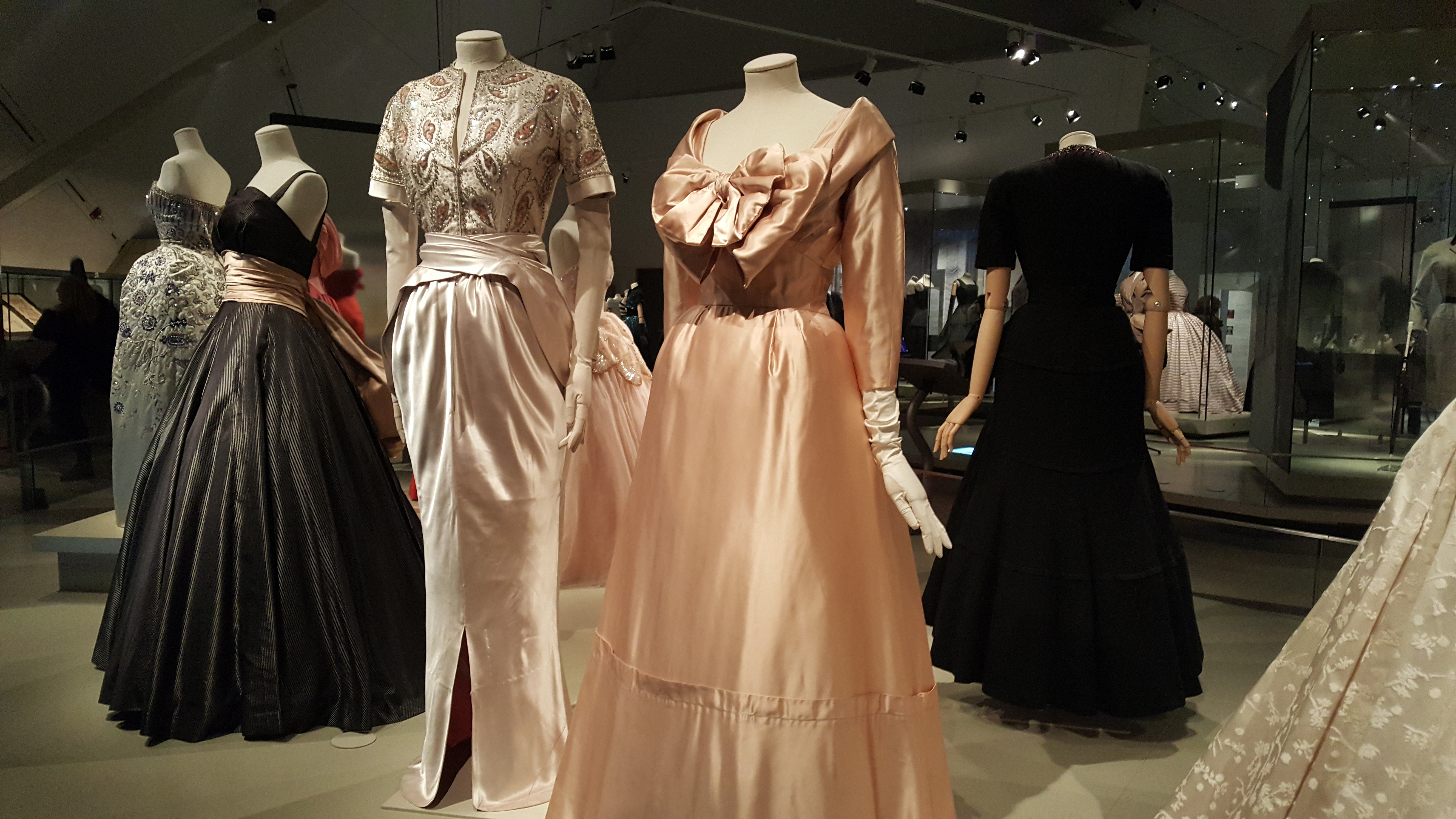
At the Royal Ontario Museum’s “Dior” exhibition. (Photo: Julia Bachelor. Please do not reproduce without permission.)
At initial glance, some of the items on display seem flimsy, flouncy, frou-frou — but the experience of wearing them changes that perception entirely. The power of putting on a Dior dress is one thing, moving around in the world quite another. I have enjoyed that privilege (again, thanks to my mother), though at times I’ve wondered if I needed the charm lessons drilled into their original owner, a gentility that the garment seems owed. Then again, I remember the photos of Ava Gardner with the designer (who was also a friend), and I feel reassured that yes, us sailor-mouthed, earthy, padding-around-the-house-barefoot-laughing-too-loudly ladies can (nay, should) wear such finery.
The collection on display at the Royal Ontario Museum focuses specifically on the designer’s haute couture work between 1947 and 1957, an era notable for being a time of great social, cultural, and technological change. I love this era (particularly styles from the 1940s) for its incredible tailoring, elegant flourishes, and careful balance of (yet quietly happy rebellion against) perceived “feminine” and “masculine” notions: the broad shoulders, the nipped-in waistlines, the contoured bottoms, the boxy necklines, the S&M-esque buttons, and the fetishistic high necklines. There’s a mischievous quality at work in much of Dior’s work through this era, and it’s wonderful to stand and reflect on on it all against a backdrop of soft lighting, vintage photos, and billowing fabrics.
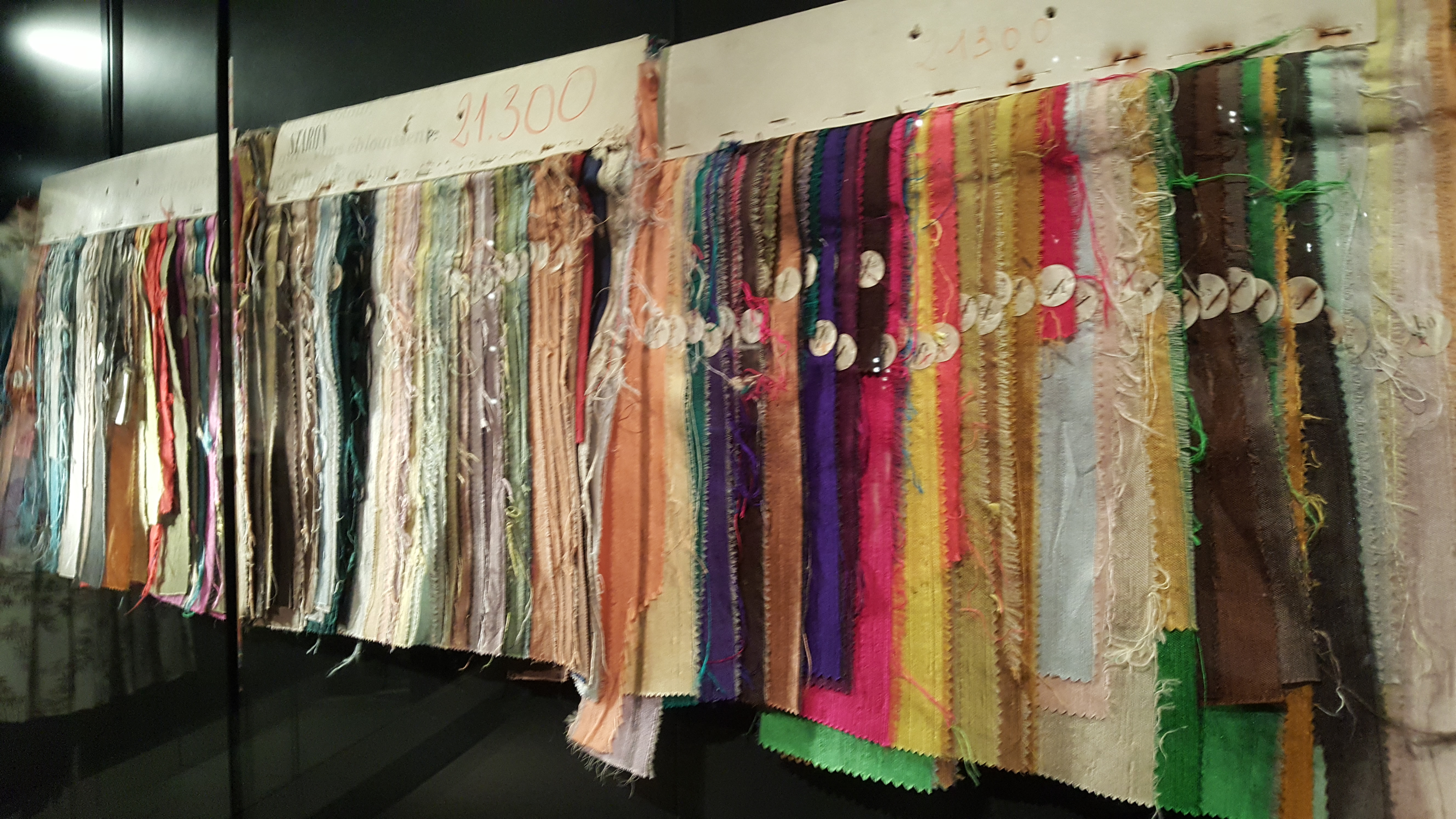
Swatches of fabric at the ROM’s “Dior” exhibition. (Photo: Julia Bachelor. Please do not reproduce without permission.)
The show, presented by Canadian luxury retailer Holt Renfrew and curated by ROM Senior Curator Dr. Alexandra Palmer, features fashions from the museum’s own collection, with various items donated by Canadian society doyennes and their families. Although it is quite limited (more than a few “is that all?”s were overheard) and there remains, for me, curious gaps in contextualization, the exhibition makes up for these limitations by featuring a fascinating array of small delights which can be all too easily missed.
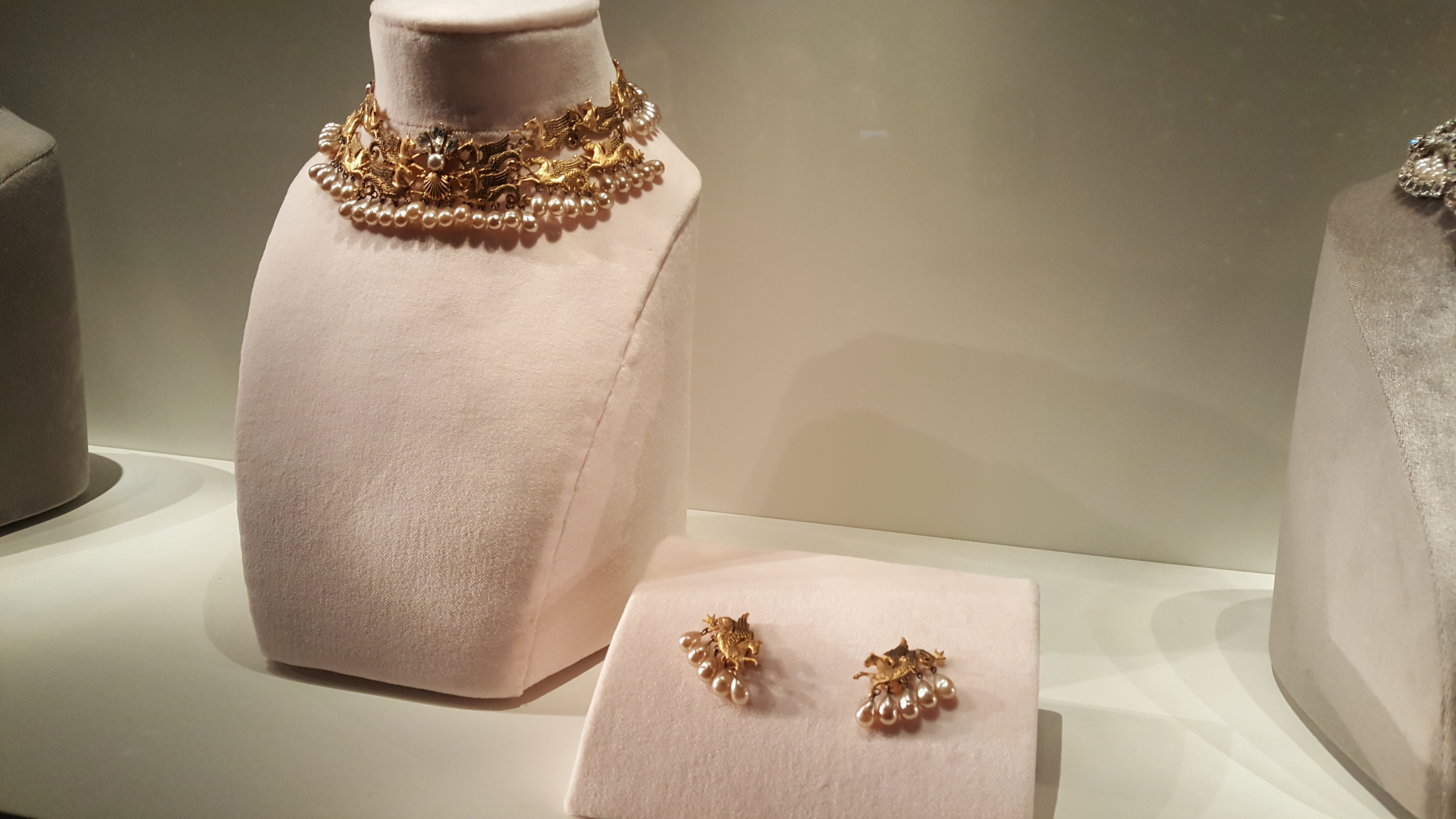
Jewelry at the ROM’s “Dior” exhibition. (Photo: Julia Bachelor. Please do not reproduce without permission.)
Carefully displayed along lengthy side cabinets, one can (should) marvel over the intricate embroideries, swatches of fabrics, ornate, if unapologetically statement-making jewelry, perfume bottles, old photos, and sleek footwear as one puts together mental ideas not solely between what is present within the room, but outside of it, in one’s own closet, in one’s own life. How would we wear these things? Where? And why? How would one smell? What would one drink? The collection invites meditation on possibilities within the realms of reality, fantasy, and the theatre of life. How measurable is one’s impact upon entering a room well-dressed? How does it make one feel? What’s the best way to put one’s foot initially forward? What about the second step? And the third? What would Mr. Dior say?
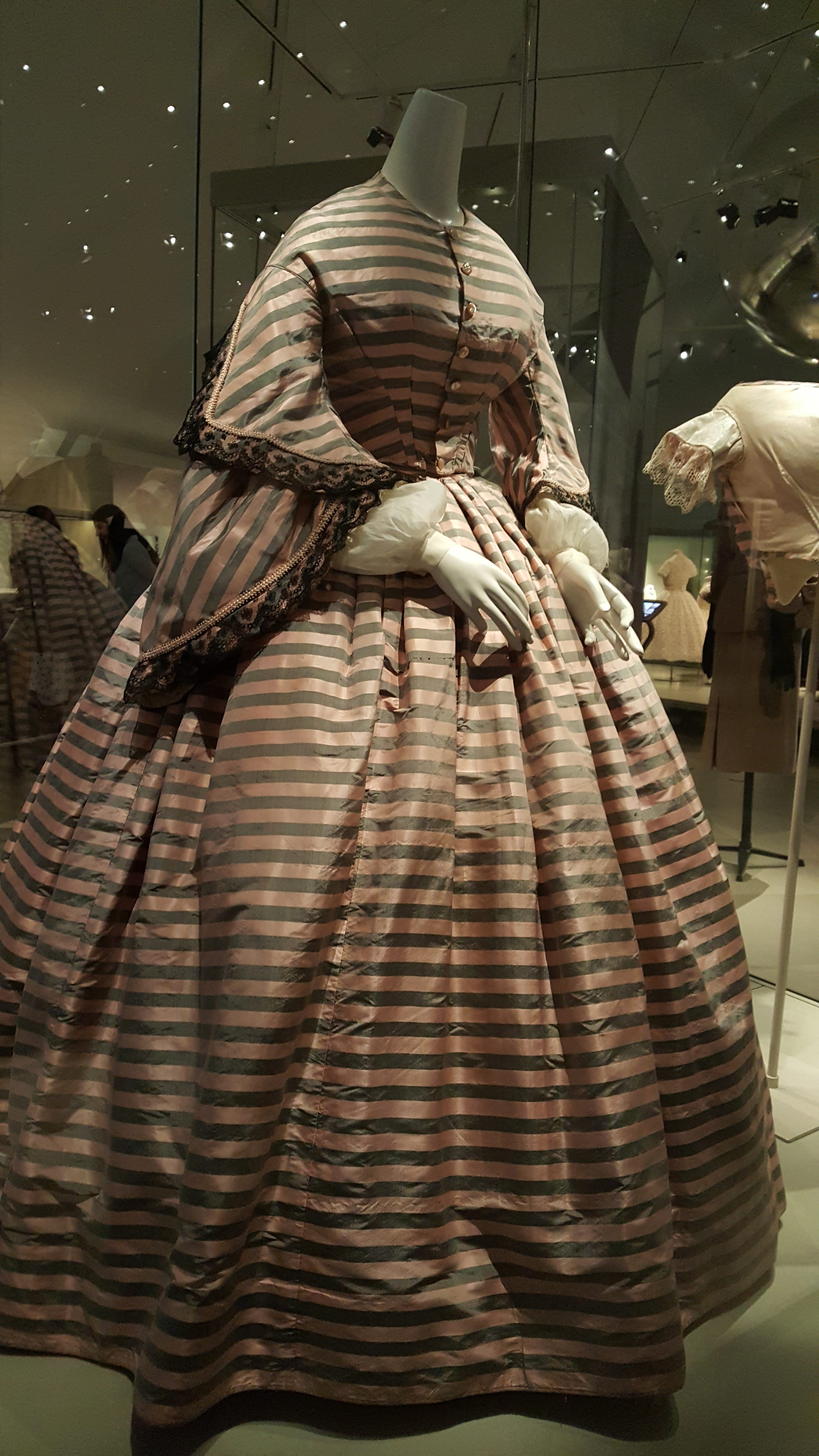
A 19th century dress in “Dior.” (Photo: Julia Bachelor. Please do not reproduce without permission.)
I considered these questions as I looked again and again at the dresses, details, and the possible dramas contained therein. The smart, viewer-friendly displays reminded me very much of the rotating costume exhibits at the Metropolitan Opera in New York City as well as the ones at the Fashion Institute of Technology, each inspiring respective awe, admiration, wonder, and fascination. The drama of dress, of course, never ceases to amaze. We all play roles, onstage and off, each holding, inspiring, producing, reflecting, and releasing various levels of power and drama. How is it different as a woman now, versus a woman in 1947-1957?
I pondered this as I wandered the exhibition proper, and subsequently through the museum’s vast ancient collections, and into rooms devoted to various facets of Roman fashion. Some lovely pieces of gold jewelry were almost precise, early models of the Dior works I’d just admired. Dior’s connection to history is obvious; he based many of his designs on much older shapes, including corseting and lingerie, vital twin aspects whose absence was very much missed. Such shapes were both used, reflected, imitated, and recycled at various social events (including opera, of course) through the decades which followed.
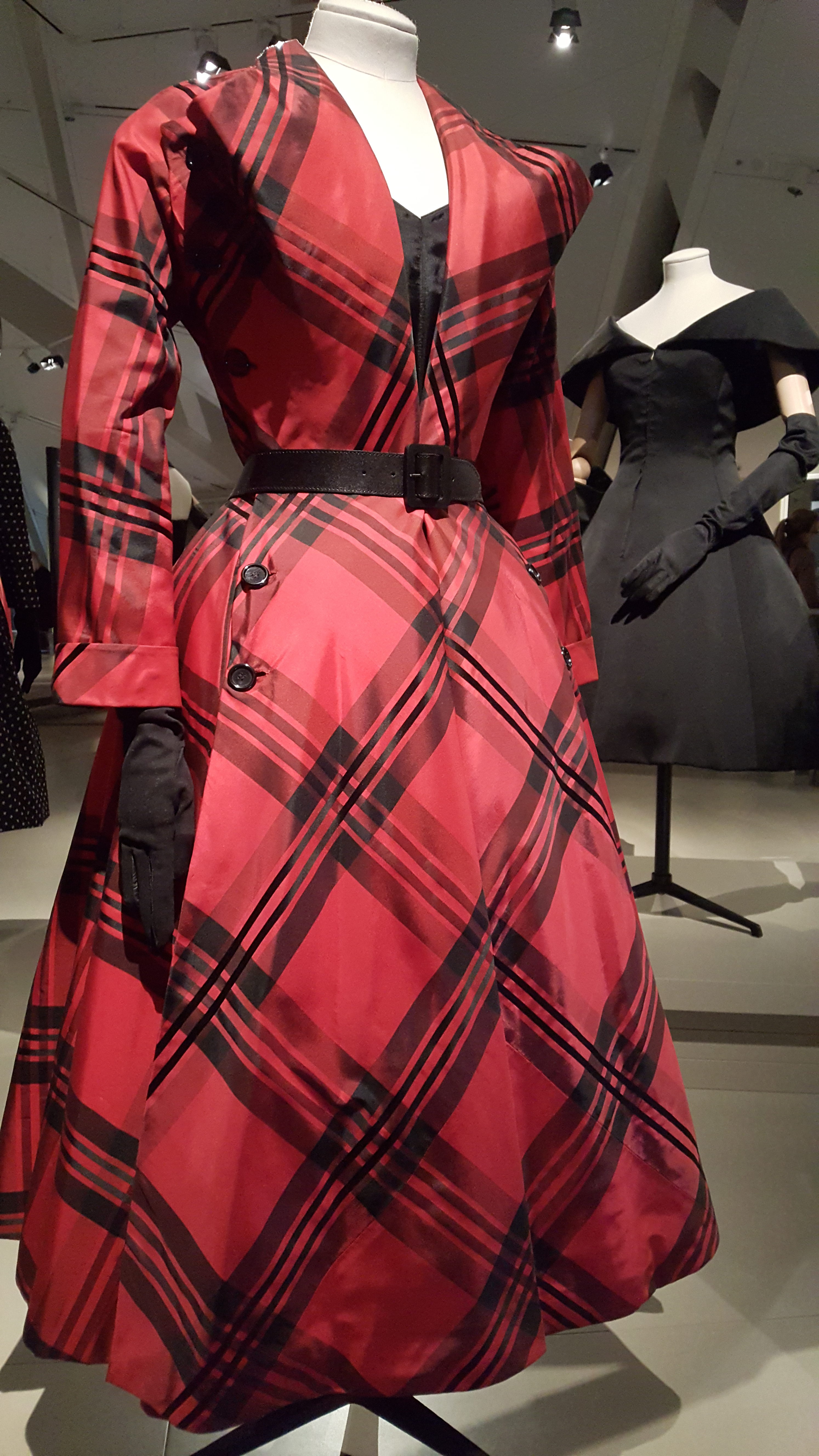
Dior at the ROM. (Photo: Julia Bachelor. Please do not reproduce without permission.)
Life imitates art, art imitates life, it is a constant cycle of giving, taking, inspiring, and expressing, a fact made clear to any fashion-lover, culture-vulture, opera-lover, and/or fascinated observer of humanity who may or may not know Dior, love Dior, or even be indifferent to Dior. You don’t need to know a lot about the particulars of style or tailoring to enjoy this sort of an exhibition; all it asks of visitors is to open themselves to the realm of elegant, meaningful, quietly powerful possibilities. Authority doesn’t shout; it doesn’t have to. Good design reminds of all this, and asks how we might manifest them with grace, goodness, and fortitude. I feel like we could use more of those qualities in our lives right now.

